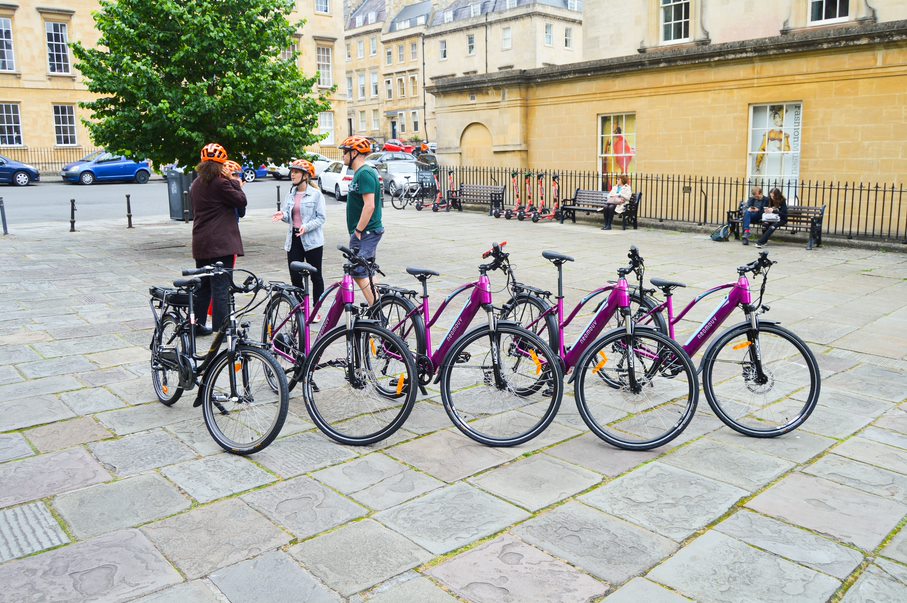Biological EDB Commercialisation – BIRAL – Business Innovation Fund

Company background
Established in 1975 and based in Portishead, Bristol Industrial and Research Associates Ltd (BIRAL) is a manufacturer, designer, and distributor of meteorological sensors.
Their product range encompasses visibility and present weather sensors, which measure fog, humidity and precipitation; thunderstorm detectors; wind measuring instruments; and pressure sensors.
With previous experience of developing instruments for the study of biological aerosols, the Covid pandemic presented an opportunity to diversify and grow at a time when some meteorological markets were depressed.
Having already established collaborative working with the Bristol Aerosol Research Centre in the School of Chemistry at Bristol University, they understood the technology which researchers had developed to suspend droplets containing virus or bacteria in an electric field for the purposes of scientific study.
With previous experience of developing aerosol analysis instruments and availability of specialist test facilities, their project proposed to develop a pre-production prototype Electrodynamic Balance (EDB) device for use in biological research applications, including on Covid-19. It would address operational challenges such as user interface, decontamination, design for manufacture and extending the environmental range of use.
Aim of their project
The Business Innovation Fund supported BIRAL with £20,000 in grant funding to help them further develop their pre-production EDB device. The project sought to:
- Extend the range of the controlled environment to which droplets are exposed in order to reflect different climatic conditions.
- Find ways to ensure simple and safe decontamination allowing the device to be used in biosafety level 3 and 4 laboratories.
- Simplify of the operator interface so that the equipment can be used easily in a biosafety cabinet with fixed glove ports.
- Design for serial commercial manufacture, potentially using a modular approach for flexibility and ease of repair.
It would involve Computer-Aided Design (CAD), electronics, embedded and control software and mechanical engineering as well as manufacturing know-how.
The instrument would be of use to public health laboratories, university research groups and pharmaceutical companies working to understand communicable diseases.
How it fits with Business Innovation Fund (BIF)
As the project would be moving a lab-tested prototype (Technology Readiness Level (TRL) 4) through further stages towards commercialisation (TRL level 6 or 7) it was a good fit for the Business Innovation Fund. If successful, there will also be direct economic benefits to the company and the region.
"The Business Innovation Fund grant minimised the risks to us of exploring a new product and diversifying into new markets providing growth and resilience."
Particular strengths of their application
BIRAL’s application made a good case for the research, development and innovation activities that they would undertake with the grant. They showed that they could respond to the Covid-19 pandemic in a meaningful way and that they would be building on the strengths of the region’s science base.
They demonstrated a solid track record in relevant fields and brought out the strengths of their expert team, giving confidence that they could deliver the project. They also had a clear route to commercialisation through their existing sales intermediaries and already had some interest in the new product.
Outputs and outcomes – economic benefits to West of England
When this is brought to market, with up to two variations, this could lead to an increase of £5m in their sales revenue over five year and the creation of two new jobs.
Progress and Future Plans
A pre-production prototype is close to completion. The next stage will be to complete the final production design.
Quote from Paul Smith CEng MIET and head of the BIRAL engineering team:
‘Many infectious diseases, both animal and human, are spread by aerosols but the factors that affect their viability in the aerosol phase are poorly understood.
Existing methods used to study viability in this phase have a number of limitations, which the EDB concept developed at Bristol University could address. We knew we had the capability to convert this device into a more robust and user friendly version that could benefit labs all over the world.
The Business Innovation Fund grant minimised the risks to us of exploring a new product and diversifying into new markets providing growth and resilience.
During the project, BIRAL has been experiencing considerable disruption to the supply of electronic components due to global supply chain issues. This has meant additional time spent on sourcing alternatives. To avoid delays we brought forward the electronic design tasks so that the necessary components could be identified and procured in good time.
We have used rapid prototyping techniques such as 3D printing to produce some of the complex parts needed, and significantly improved performance using novel approaches to the environmental control elements.
The project has shown good results so far and there is strong interest being shown in the device from both academic and commercial labs.’




















